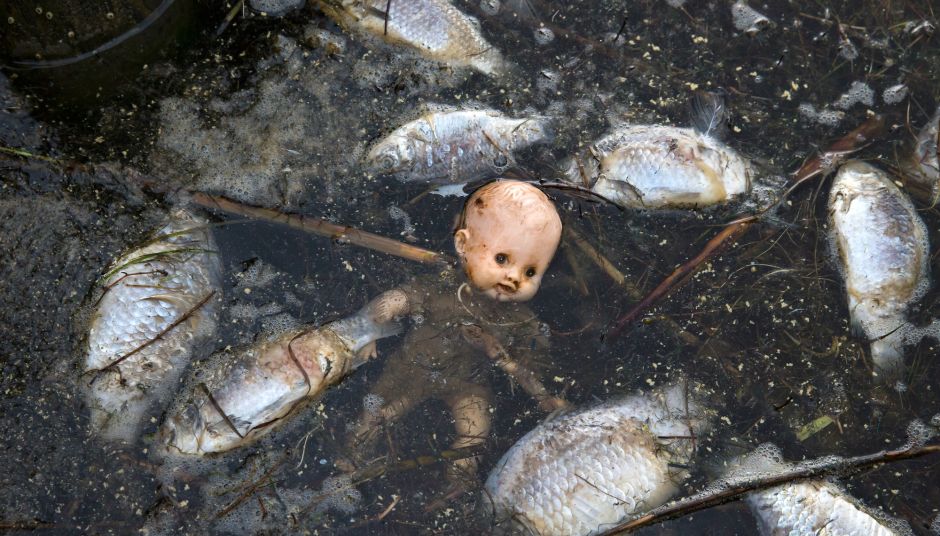The Swedish NAO: The Government is doing too little to address shipping emissions

In a new report released today, the Swedish National Audit Office (Riksrevisionen) criticizes the government for not doing enough to reduce harmful emissions from the shipping industry. The efforts currently being made do not lead to any actual reductions in emissions in the short term, and Swedish legislation is more lenient compared to many other countries.
The Swedish NAO has reviewed the government's efforts to reduce harmful emissions from ships into the sea, and the overall conclusion is that these efforts are ineffective. Sweden’s regulations also allow ships greater leeway to release harmful substances into the sea compared to many other countries. For example, in the case of wash water from cleaning cargo tanks, Swedish regulations allow ships to leave Swedish ports, discharge cargo residues after tank cleaning, and then return to the same port for reloading. Additionally, Sweden has not restricted the discharge of scrubber water from the washing of ship exhaust gases.
“The government has recently proposed a ban on scrubber water discharges, but it also needs to address stricter regulations concerning cargo residue discharges,” says Auditor General Christina Gellerbrant Hagberg in a press release from The Swedish NAO.
The audit also reveals that Swedish ports do not always have sufficient capacity to handle harmful substances that ships need to offload at the port. Despite this, the Swedish Transport Agency (Transportstyrelsen) does not thoroughly assess whether the actual capacity meets the needs.
“We’re often talking about large quantities of harmful substances that ships need to leave in port. Therefore, the Swedish Transport Agency needs to improve its assessments to ensure that the port reception capacity is adequate in practice,” says Fredrik Engström, the project manager for the review.
Other government initiatives also face criticism. For example, the marine environment action program, established by the Swedish Agency for Marine and Water Management (Havs- och vattenmyndigheten), contains few concrete measures to reduce shipping emissions. Whether the program will contribute to actual emission reductions by the planned end date of 2027 is uncertain, according to the audit. Furthermore, it points out that the Swedish Coast Guard's investigations of suspected illegal discharges of harmful substances other than mineral oil almost never lead to legal action. This is partly due to a lack of methods for calculating the volume of such discharges. Additionally, the Swedish Maritime Administration’s (Sjöfartsverket) environmental differentiation of fairway dues does little to incentivize shipping companies to reduce discharges of scrubber water and other harmful liquid substances into the sea.
The Swedish NAO makes the following recommendations:
- The government should introduce a ban on scrubber water discharges in all Swedish territorial waters as soon as possible. The government should also review Swedish regulations regarding cargo residue discharges to ensure they comply with the requirements of international conventions.
- The Swedish Transport Agency should ensure that ports have sufficient reception capacity for harmful liquid substances.
- The Swedish Agency for Marine and Water Management, in consultation with the Swedish Transport Agency, should consider developing more concrete and feasible measures to minimize the environmental impact of shipping on the seas.
- The Swedish Coast Guard should investigate how methods for calculating the volume of harmful substances other than mineral oil can be developed.
- The Swedish Maritime Administration should create stronger financial incentives for shipping companies to reduce scrubber water and harmful cargo residue discharges.
-
 Ny studie: Eldrivna pendelbåtar kan effektivisera Stockholms kollektivtrafik
Ny studie: Eldrivna pendelbåtar kan effektivisera Stockholms kollektivtrafik -
 Sjöfartens utsläpp ökar
Sjöfartens utsläpp ökar -
 Sociala relationer påverkar val av bränsle
Sociala relationer påverkar val av bränsle -
 Sjöfartens omställning kräver ”mjukare” påtryckningar
Sjöfartens omställning kräver ”mjukare” påtryckningar -
 Hon hade avtalad tid med Kapten ynkrygg
Hon hade avtalad tid med Kapten ynkrygg -
 Lighthouse omvärldsanalys 2025 – osäkerhet och tullar präglar sjöfarten
Lighthouse omvärldsanalys 2025 – osäkerhet och tullar präglar sjöfarten -
 Se seminariet Shipping in the Marine Environment
Se seminariet Shipping in the Marine Environment -
 Vad betyder egentligen de 90 procenten?
Vad betyder egentligen de 90 procenten? -
 Hålla där...
Hålla där... -
 Ny rapport: Klimatförändringarna ett hot mot de flesta större hamnar i världen
Ny rapport: Klimatförändringarna ett hot mot de flesta större hamnar i världen

